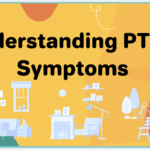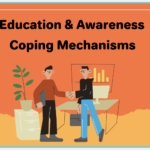Suicide prevention hotlines play a crucial role in providing essential support to individuals experiencing emotional distress and mental health crises in the UK. These hotlines serve as immediate lifelines, connecting individuals with trained professionals who understand the complexities of their situations and can offer empathy, guidance, and practical advice. The importance of these services cannot be overstated, as they are often the first point of contact for someone in crisis who may feel isolated or despairing.
Many people face overwhelming feelings of hopelessness and isolation that can lead to suicidal thoughts. In such moments, access to a dedicated hotline can provide an invaluable resource for support. Hotlines are staffed by individuals who are empathetic and equipped with the necessary training to handle sensitive situations. The confidentiality and anonymity that these services provide encourage individuals to reach out for help without the fear of judgement, promoting increased dialogue around mental health issues.
In recent years, there has been a growing recognition of the prevalence of mental health challenges in society. This awareness has led to efforts aimed at destigmatizing conversations around suicide and the importance of seeking help. By offering 24/7 availability, the hotlines ensure that assistance is accessible at any time, highlighting their central role in crisis intervention. For many, a simple phone call can be the first step towards recovery, making knowledge of these resources vital for anyone who might find themselves, or someone they know, in a vulnerable state.
Overall, suicide prevention hotlines are not just services; they embody a commitment to preserving life and promoting mental well-being. Enhancing awareness around their importance can empower individuals to take proactive steps in addressing their mental health crises.
Understanding the Impact of Mental Health Issues
Mental health issues present a significant challenge in contemporary society, ultimately leading some individuals to contemplate suicide. In the UK, approximately one in four adults experience a mental illness at some point in their lives. The range of mental health disorders includes anxiety disorders, depression, bipolar disorder, and schizophrenia. Each of these conditions can create overwhelming feelings of hopelessness and despair, which are critical factors contributing to suicidal thoughts. The urgency for effective support is further emphasized by the statistic that nearly 800,000 people die from suicide globally each year, with a considerable proportion of these individuals suffering from undiagnosed or inadequately treated mental health conditions.
Within the UK population, a significant number of individuals with mental health issues do not seek help. Barriers such as stigma, lack of awareness, and inadequate access to mental health services can prevent those in need from obtaining appropriate support. This situation becomes particularly alarming for vulnerable groups, including young adults and marginalized communities, who may be at a greater risk for mental health issues yet face additional obstacles in seeking assistance. The importance of mental health education and open dialogue is paramount to dismantling the stigma surrounding these topics.
The relationship between mental health struggles and suicidal ideation is critical in understanding the necessity for hotlines and other support systems. These resources provide immediate access to help and guidance for those in distress, encouraging individuals to articulate their feelings and seek professional support. The availability of suicide prevention hotlines is a lifeline for those wrestling with mental health challenges, underscoring the need for integrated mental health services that are both accessible and responsive. Recognizing the profound connection between mental health and the risk of suicide is essential for fostering a more supportive community and encouraging individuals to reach out for help.
Understanding the Functionality of Suicide Prevention Hotlines
Suicide prevention hotlines serve as critical lifelines for individuals experiencing emotional distress, offering immediate support and assistance. These hotlines operate through a dedicated framework designed to create a safe and confidential environment for those who reach out for help. When an individual contacts a hotline, they are greeted by trained volunteers or professional staff members equipped to handle a range of emotional crises. The initial assessment involves active listening, where the responder validates the caller’s feelings, creating a rapport that encourages open communication.
The training for hotline staff and volunteers is comprehensive and focuses on empathic communication, crisis intervention, and mental health awareness. This preparation ensures that responders can identify the caller’s needs and determine the appropriate course of action. They are trained to manage various situations, from providing emotional support and resources to helping callers who may be contemplating self-harm or suicide. Regular training sessions and updates may also be conducted to keep staff abreast of new mental health developments and best practices.
Hotlines typically follow established protocols to maintain safety and confidentiality. This includes using specific questioning techniques that help assess the caller’s risk level while ensuring they feel respected and understood. Callers are encouraged to speak openly about their feelings without fear of judgment or repercussions. Additionally, many hotlines provide a repertoire of resources and referral options, guiding individuals towards further support in their local communities.
Major UK Suicide Prevention Hotlines
In the United Kingdom, various helplines offer crucial support for individuals in distress. Here is a comprehensive list of major suicide prevention hotlines that provide immediate assistance to those in need.
1. Samaritans
Phone Number: 116 123
Availability: 24/7
Samaritans is a confidential service that provides emotional support to anyone in crisis, regardless of the circumstances. Their trained volunteers offer a listening ear and can help individuals explore their thoughts and feelings without judgment.
2. National Suicide Prevention Helpline
Phone Number: 0800 689 5652
Availability: 7 days a week, 24 hours a day
The National Suicide Prevention Helpline offers immediate support for anyone facing suicidal thoughts or crises. This hotline connects callers with trained advisors who provide resources, guidance, and the reassurance needed during tough times.
3. Shout
Text Service: Text “SHOUT” to 85258
Availability: 24/7
Shout is a free and confidential text messaging service that offers support during moments of crisis. By sending a simple text, individuals can connect with trained crisis volunteers who listen and engage in conversation, helping them work through their distress.
4. Mind
Phone Number: 0300 123 3393
Availability: Monday to Friday, 9 am to 6 pm
Mind provides important information and support to individuals experiencing mental health issues. Their help line connects people with trained advisors who can offer support and assistance in navigating mental health crises, including suicide-related concerns.
5. Papyrus
Phone Number: 0800 068 41 41
Availability: Monday to Friday, 10 am to 10 pm; weekends, 2 pm to 10 pm
Papyrus is dedicated to preventing young suicide in the UK. Their helpline supports those under 35, providing a safe space to discuss feelings, thoughts of self-harm, or suicide, and helping with crisis management.
This list is a vital resource for individuals seeking immediate help and support during critical moments. Reach out to a hotline when in distress; assistance is available.
Specialized Support Hotlines for Specific Groups
In recognition of the diverse challenges faced by specific demographics, various specialized support hotlines have been established to offer tailored assistance. These services play a crucial role in addressing the unique circumstances encountered by groups such as LGBTQ+ individuals, young people, and veterans, who may experience distinct forms of distress that general hotlines might not fully address.
For instance, the LGBTQ+ community often grapples with issues related to identity, acceptance, and social stigma. Hotlines like the LGBT National Help Center provide a safe and confidential space for individuals seeking support. Trained counselors understand the struggles associated with coming out, discrimination, and relationship troubles, allowing for a more empathetic and informed response. Such hotlines serve as indispensable lifelines, fostering a sense of community and belonging.
Similarly, young people face a range of pressures, from academic stress to peer relationships and mental health challenges. Organizations like Teen Line cater specifically to this demographic, offering peer support from trained volunteers. By connecting youth with others who have faced similar situations, these hotlines facilitate a relatable and empowering support system. They also emphasize the importance of mental well-being, encouraging young individuals to seek help proactively before crisis situations arise.
Veterans, too, encounter unique difficulties as they transition back to civilian life. The Veterans Crisis Line provides solid support through trained professionals who understand military culture and the specific challenges veterans may encounter, including PTSD, reintegration issues, and feelings of isolation. This dedicated service ensures that veterans feel acknowledged and understood, paving the way for healing and recovery.
Overall, specialized hotlines offer a vital resource for these distinct groups, emphasizing the importance of tailored support in addressing their unique challenges. As individuals in distress seek help, these lifelines represent hope and understanding, ultimately fostering resilience within the community.
Other Resources Available Alongside Hotlines
In situations where individuals find themselves in distress, it is essential to recognize that there are several resources available beyond the traditional hotline services. These alternatives can provide crucial support and may offer the preferred mode of communication for many who are seeking help.
One prominent option is online chat services. These services allow individuals to communicate with trained professionals through a text-based format, which can sometimes feel less intimidating than a phone conversation. Online chat can be particularly beneficial for those who prefer anonymity or who may struggle to articulate their feelings verbally. Many organizations provide this service, operating through their websites and often available 24/7. Users can engage in conversations with counselors who can listen and provide support in real time.
Text support services are another valuable resource available to those seeking immediate assistance. These services enable individuals to send a text message to a dedicated number, where they can connect with a trained professional. Text communication can be a less pressured way for someone to express their struggles, particularly for younger individuals who may be more comfortable communicating through texting rather than voice calls. This accessible mode of communication has proven effective in reaching out to those who might be hesitant to call a hotline.
Additionally, community mental health services offer a more localized approach to mental wellness support. These services often include counseling and therapy, access to support groups, and other resources catered to individual needs. They can provide comprehensive care and long-term support that complements the immediate assistance offered by hotlines, establishing a complete system of mental health resources. By exploring these alternatives, individuals can find the support they require in a manner that is most conducive to their comfort and well-being.
How to Approach a Conversation About Mental Health
Having conversations about mental health can be challenging yet essential for supporting friends or family members who may be struggling. It is crucial to encourage open dialogues while being sensitive to the feelings of those involved. When approaching someone, ensure that you choose a private and comfortable setting where they feel safe to express their thoughts and feelings. Start the conversation with compassion and empathy, acknowledging that mental health is an important topic that can often be overlooked.
Using open-ended questions can help facilitate the discussion. For instance, you may ask, “How have you been feeling lately?” This allows the individual to share as much or as little as they want, maintaining control over their narrative. As they speak, it is vital to practice active listening. This means giving your full attention, maintaining eye contact, and responding with verbal affirmations such as “I understand” or “That sounds really tough.” This approach not only validates their feelings but also fosters a sense of trust, making them more likely to open up.
While discussing sensitive topics, be patient and avoid jumping to conclusions or offering unsolicited advice. If they seem hesitant to share, reassure them that it’s okay to take their time. An important aspect of these conversations is to gently encourage them to seek professional help if needed. Familiarize yourself with the available resources, such as UK suicide prevention hotlines, and suggest that they consider reaching out for additional support. Let them know that seeking help is a sign of strength, not weakness. Providing clear information about these resources can be a vital first step toward their well-being.
Personal Stories: Hope and Recovery
Personal narratives can often serve as powerful reminders of the hope and healing that can emerge from moments of distress. Many individuals have bravely shared their experiences related to the challenges of suicidal thoughts and the impact of reaching out to suicide prevention hotlines. These testimonials provide both insight and inspiration to others who may find themselves in similar situations.
One such story comes from Sarah, a young woman who faced a particularly difficult time after losing a close friend to suicide. Overwhelmed by grief, she began to feel isolated and despondent. However, during one particularly dark night, she decided to call a suicide prevention hotline. The compassionate listener on the other end provided not only an empathetic ear but also practical strategies to cope with her feelings. Sarah recalls how this brave decision to reach out marked a significant turning point in her journey towards recovery. She emphasizes that the supportive conversation gave her a renewed perspective, reassuring her that she was not alone in her struggles.
Similarly, David, a father of two, encountered his crisis during a challenging phase in life. With work pressures mounting and family responsibilities weighing heavily, feelings of hopelessness took over. He too reached out to a suicide prevention hotline after a particularly troubling day. During this call, he discovered that he could openly discuss his feelings without fear of judgment. The hotline worker offered resources and encouraged David to seek professional help. Now, David speaks passionately about this intervention, highlighting how the act of calling transformed his outlook and provided him with tools to manage his mental health effectively.
These stories accentuate the importance of connection and the invaluable role that suicide prevention hotlines can play in facilitating recovery. Such narratives reaffirm the idea that seeking help is not a sign of weakness, but rather an empowering step towards healing and hope. Each story reflects the remarkable resilience of the human spirit and the potential for recovery when one reaches out for support.
Encouraging Advocacy and Awareness for Mental Health
The movement toward suicide prevention advocacy plays a crucial role in the ongoing efforts to address mental health issues within communities. Raising awareness about mental health is vital in combating stigma and enabling individuals to seek help when needed. This advocacy encompasses a variety of initiatives aimed at educating the public on the signs and symptoms of mental health conditions, as well as the resources available for those who may be struggling. Organizations across the UK have been instrumental in promoting these messages, enabling increased dialogue around mental health.
By fostering a community committed to mental health support, we can facilitate an environment where individuals feel empowered to express their struggles openly. Mental health awareness campaigns often highlight the importance of early intervention, which can significantly reduce the risk of suicide. It is essential to promote not only the understanding of mental health disorders but also the recognition that these conditions can affect anyone, regardless of age, gender, or background. The more we talk about mental health, the more we normalize it as a critical aspect of overall well-being.
In addition to raising awareness, advocacy efforts encourage the dissemination of information about available resources, such as hotlines and support groups. Sharing these resources with friends, family, and colleagues can help create a supportive network vital for those in distress. The accessibility of mental health services can make a significant difference in someone’s life, often providing them with the tools they need to navigate their challenges effectively.
Everyone can play a role in this advocacy movement by engaging in discussions about mental health, volunteering for local organizations, or simply checking in on friends and loved ones. By collectively working towards reducing stigma and promoting mental health support, we can strive to create a society where individuals feel safe to seek help and where the risk of suicide is minimized.





